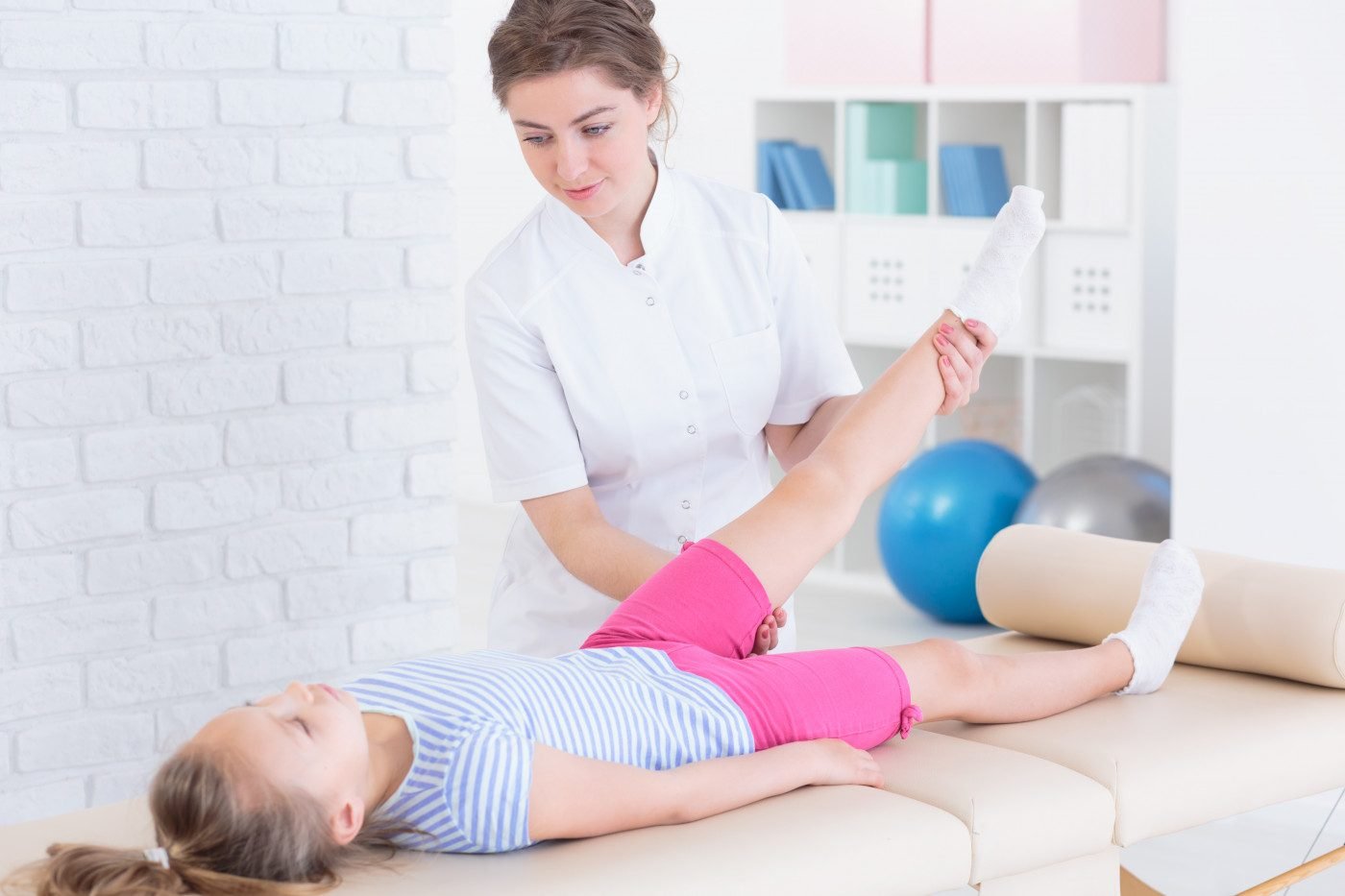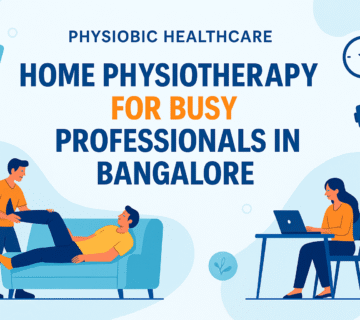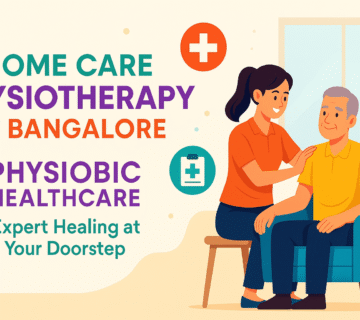Abstract
Cerebral palsy (CP) is a group of neurological disorders that affect movement and muscle coordination, resulting from brain damage during fetal development, childbirth, or shortly after birth. Physiotherapy plays a crucial role in the management of CP, improving functional mobility, strength, and overall quality of life. This paper discusses the effectiveness of home-based physiotherapy for children with cerebral palsy in Bangalore, particularly focusing on the services provided by Physiobic Healthcare.
Introduction to Physiotherapy for Cerebral Palsy at Home in Bangalore
Cerebral palsy is one of the most common motor disabilities in childhood, affecting approximately 1 in 345 children in India. The condition can manifest in various forms, leading to challenges in mobility, communication, and daily activities. Traditional physiotherapy often takes place in clinical settings, which may not be accessible for all families. Home-based physiotherapy offers a promising alternative, allowing for personalized care in a familiar environment.
This study aims to explore the impact of home physiotherapy on children with CP in Bangalore, highlighting the role of Physiobic Healthcare in providing these essential services.
Understanding Physiotherapy for Cerebral Palsy at Home in Bangalore
Types of Cerebral Palsy
Cerebral palsy is classified into several types based on the movement abnormalities:
- Spastic CP: Characterized by stiff and tight muscles.
- Dyskinetic CP: Involves uncontrolled movements and fluctuating muscle tone.
- Ataxic CP: Affects balance and coordination.
- Mixed CP: A combination of different types.
Causes and Risk Factors
The primary causes of cerebral palsy include:
- Prenatal factors: Infections during pregnancy, lack of oxygen, and genetic disorders.
- Perinatal factors: Complications during labor and delivery.
- Postnatal factors: Traumatic brain injury, infections like meningitis.
Symptoms
Common symptoms of CP include:
- Difficulty in movement and coordination
- Muscle stiffness or floppiness
- Poor posture
- Difficulty in speech and communication
- Associated conditions like seizures or cognitive impairments
The Role of Physiotherapy for Cerebral Palsy at Home in Bangalore
Physiotherapy is integral to the management of cerebral palsy. It focuses on:
- Enhancing physical function
- Improving mobility and posture
- Reducing spasticity and promoting relaxation
- Teaching motor skills and coordination
- Supporting the child’s overall development
Objectives of Physiotherapy for CP
The primary objectives of physiotherapy for children with CP include:
- Maximizing independence: Encouraging self-care and mobility.
- Enhancing muscle strength and coordination: Through targeted exercises.
- Improving posture and alignment: To prevent secondary complications.
- Facilitating motor skill development: To enhance daily functioning.
Physiotherapy for Cerebral Palsy at Home in Bangalore: A New Approach
Benefits of Physiotherapy for Cerebral Palsy at Home in Bangalore
- Personalized Care: Home visits allow physiotherapists to tailor treatments based on the child’s specific needs and environment.
- Increased Comfort: Familiar surroundings can reduce anxiety for both the child and caregivers.
- Family Involvement: Caregivers can actively participate in therapy, enhancing the child’s learning experience.
- Convenience: Families save time and effort by eliminating travel to clinical settings.
Challenges
While home-based physiotherapy offers numerous benefits, some challenges include:
- Limited access to specialized equipment that may be available in clinics.
- Potential lack of structured therapy schedules.
- Variability in caregiver engagement and support.
Physiobic Healthcare: A Case Study
Overview
Physiobic Healthcare is a leading provider of home-based physiotherapy in Bangalore, specializing in pediatric care, including children with cerebral palsy. The organization is committed to delivering high-quality physiotherapy services tailored to the unique needs of each child.
Services Offered – Physiotherapy for Cerebral Palsy at Home in Bangalore
- Initial Assessment: A comprehensive evaluation to determine the child’s specific needs and develop a personalized treatment plan.
- Individualized Therapy Plans: Customized exercises focusing on strength, flexibility, and coordination.
- Family Education: Training caregivers on how to support their child’s therapy and manage day-to-day activities.
- Continuous Monitoring: Regular follow-ups to assess progress and adjust treatment plans as necessary.
Case Examples
Case 1: Child with Spastic CP
A 6-year-old girl with spastic cerebral palsy received home physiotherapy for six months. The treatment focused on:
- Stretching exercises to reduce muscle stiffness
- Strength training to improve lower limb function
- Balance activities to enhance coordination
After six months, the child showed significant improvements in mobility, being able to walk with minimal assistance.
Case 2: Child with Dyskinetic CP
A 10-year-old boy with dyskinetic CP benefited from home physiotherapy that included:
- Play-based interventions to encourage movement
- Fine motor skill development through engaging activities
- Parental involvement to reinforce exercises during daily routines
The child demonstrated improved control over his movements and increased engagement in play activities.
Research Findings
Several studies have shown the effectiveness of home-based physiotherapy for children with cerebral palsy. A systematic review indicated that home-based interventions could lead to significant improvements in functional mobility, muscle strength, and overall quality of life.
Evidence from Bangalore
In Bangalore, Physiobic Healthcare conducted a pilot study with 50 children diagnosed with cerebral palsy. Key findings included:
- Functional Mobility: 80% of participants showed improvements in mobility scores.
- Parent Satisfaction: 90% of parents reported high satisfaction with the home-based therapy model.
- Engagement: Increased participation from caregivers led to better adherence to therapy.
Conclusion
Home-based physiotherapy represents a vital approach to managing cerebral palsy, especially in urban settings like Bangalore, where access to clinical care may be limited. Physiobic Healthcare’s commitment to personalized, family-centered care has shown promising results in enhancing the quality of life for children with CP.
Future Directions
Continued research and development of home physiotherapy programs are essential to address the evolving needs of children with cerebral palsy. Collaboration between healthcare providers, families, and educational institutions can enhance the effectiveness of therapy and promote better outcomes for affected children.
Recommendations
- Increase Awareness: Parents and caregivers should be educated about the benefits of home-based physiotherapy.
- Training for Caregivers: Implement programs to train family members in supporting their child’s therapy.
- Access to Resources: Improve access to physiotherapy resources and support services within communities.
By prioritizing home-based physiotherapy for children with cerebral palsy, we can make significant strides toward improving their mobility, independence, and overall well-being. Physiobic Healthcare is dedicated to leading this change, ensuring that every child receives the best possible care right at home.



